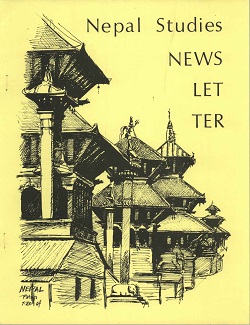Author Biography
Susan Heydon (PhD, History, University of Otago, 2006) is Senior Lecturer in Social Pharmacy at the School of Pharmacy, University of Otago, New Zealand. She teaches undergraduate and postgraduate students about medicines and society. Her research uses historical methods to explore current health issues and focuses on Nepal where she spent two years with her family as a volunteer in the Mt. Everest region. She is author of Modern Medicine and International Aid: Khunde Hospital, Nepal 1966-1998, as well as a number of book chapters and journal articles.
Abstract
An increasing quantity of medicines, including medicines of different healing systems, have become available since the nineteen fifties to the mainly Sherpa inhabitants of the Mt. Everest region of Nepal. Considerable change and economic development has occurred in which this mountainous and remote area has become one of Nepal’s principal tourist destinations and people have gained access to education, health services, and modern means of communication. Many Sherpa travel regularly in Nepal and overseas, especially for work, education, or pilgrimage, or have migrated permanently. Focusing on oral histories, this article explores factors that have influenced people’s use of different medicines over time. It provides a wider understanding of the health-seeking process for Sherpa and emphasizes the importance of individual Sherpa life experiences, as well as collective changes. Many factors influence medicines use, but perceptions of efficacy and appropriateness continue to appear more important than ‘scientific’ knowledge underpinning ‘modern’ medicines. The source of medicines also matters. Over time people have become familiar with and generally trust Khunde Hospital, which was built in 1966 by New Zealand climber Sir Edmund Hillary. In contrast, Sherpa traveling to the capital Kathmandu have greater access to different types of medicines yet often face uncertainty about where to get medicines and issues of quality and cost. People prefer the ease of taking tablets, but some consider injections more powerful, if problematic, because of the influence of spirits. Cultural practices relating to health prevention, including taking religious medicines, remain important.
Acknowledgements
A University of Otago Research Grant supported this research enabling the author to return to Nepal in 2012 to carry out the interviews that form the basis of this article. Special thanks are due to friend and colleague Dr. Kami Temba Sherpa, interpreters Mingma Temba Sherpa and Gayse Nuru Sherpa, and all who helped with the research. Their support and friendship over the years makes it possible.
Creative Commons License

This work is licensed under a Creative Commons Attribution 3.0 License.
Recommended Citation
Heydon, Susan. 2015. Which Medicine? Medicine-Taking and Changing Sherpa Lives. HIMALAYA 35(1).
Available at:
https://digitalcommons.macalester.edu/himalaya/vol35/iss1/9


